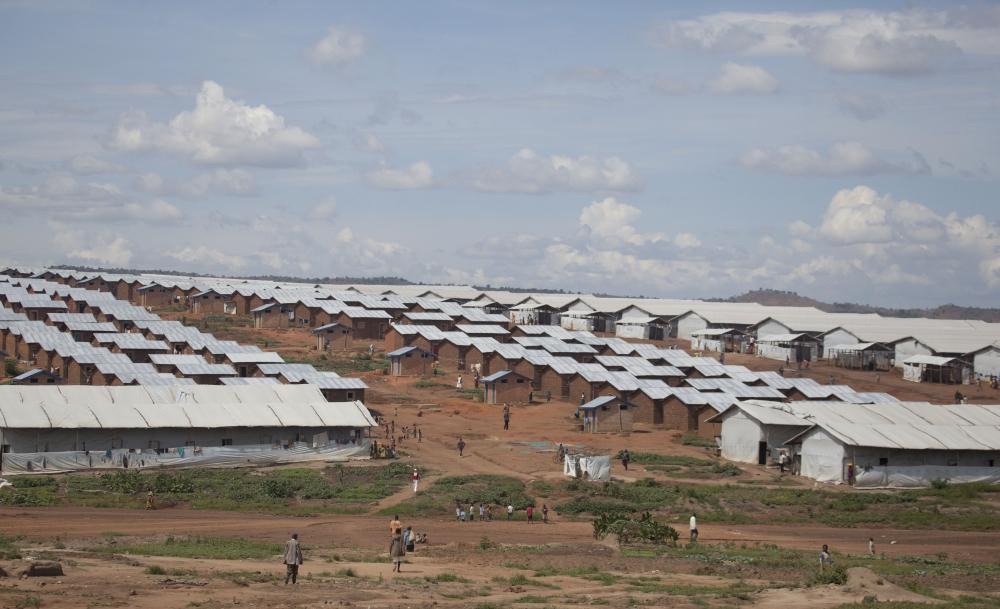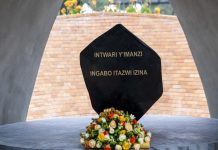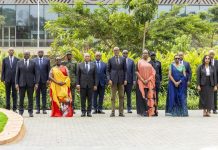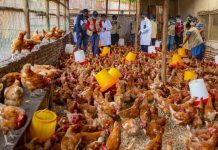Africa-Press – Rwanda. The government of Rwanda is exploring the possibility of transitioning from refugee camps to sustainable settlements which are in line with international commitments to promote inclusion, self-reliance, and durable solutions for refugees and host communities.
This was a key outcome of a meeting held on Tuesday, August 26 between officials from the government of Rwanda and the UN Refugee Agency (UNHCR).
It was attended by the Minister of Emergency Management Maj. Gen. Albert Murasira, the Minister of Justice Emmanuel Ugirashebuja, immigrations director general Lynder Nkuranga, and UNHCR’s Regional Director for East and Horn of Africa and the Great Lakes Mamadou Dian Balde.
The talks centred on Rwanda’s commitment to align with the Global Compact on Refugees by gradually moving from camp-based refugee management to integrated settlements.
The Global Compact on Refugees is a framework for more predictable and equitable responsibility-sharing, recognising that a sustainable solution to refugee situations cannot be achieved without international cooperation.
It provides a blueprint for governments, international organisations, and other stakeholders to ensure that host communities get the support they need and that refugees can lead productive lives.
It also constitutes a unique opportunity to transform the way the world responds to refugee situations, benefiting both refugees and the communities that host them.
“We agreed on the need for stronger coordination and the development of a clear roadmap to guide the next steps,” reads a statement from the Ministry of Emergency Management (MINEMA).
Aristarque Ngoga, MINEMA’s Permanent Secretary, told the NewTimes that while the idea is still at an early stage, work is underway to develop a framework.
“We are building concept ideas around this. A feasibility study is not yet done, but we have agreed on Terms of Reference,” he said.
The Terms of Reference will serve as a formal document outlining the purpose, scope, objectives, roles, and responsibilities of the initiative. It will act as a blueprint, ensuring clarity and a shared understanding among stakeholders, and defining what needs to be done, who will do it, and the expected deliverables.
Ngoga added that the meeting with UNHCR also set up a team to develop the roadmap for implementation.
“We met with UNHCR to set up a team to develop the roadmap. Rwanda is not unique in doing this; in Kenya, Ethiopia, and Uganda it is already being implemented,” he noted.
Beyond settlement models, discussions also reviewed progress in implementing the new law governing refugees and applicants for refugee status, adopted in April 2024.
The law provides a clear framework for refugee protection, including criteria for eligibility, rights, and settlement procedures. It also mandates the establishment of an appeal tribunal and improved refugee status determination processes to strengthen accountability and fairness.
Article 3 of the law defines eligibility for refugee status, citing grounds such as persecution due to race, religion, nationality, membership of a particular social group, political opinion, or situations that threaten life due to external occupation or public disorder.
It further specifies that refugees and applicants may be authorised by the Minister to settle in designated camps, while also providing flexibility for those who choose to relocate outside camps upon notification.
As of December 2024, Rwanda hosted about 135,000 refugees, most of them living in five camps across the country, according to UNHCR figures. The majority originate from the Democratic Republic of Congo and Burundi.
For More News And Analysis About Rwanda Follow Africa-Press






